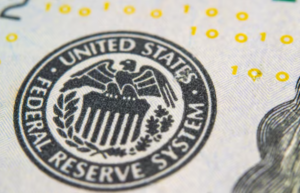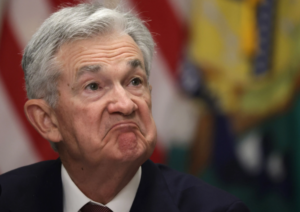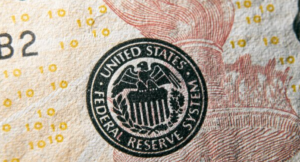$MCD $YUM $BTC
#FastFood #Inflation #KShapedEconomy #StockMarket #Investing #Crypto #BusinessNews #ConsumerSpending #Recession #FoodPrices #EconomicTrends #MarketAnalysis
Fast food has become a focal point in the ongoing discussion about the K-shaped economic recovery, where different segments of the population experience vastly varying financial outcomes. On one end, higher-income consumers remain resilient, continuing to spend at premium restaurants and expanding their discretionary expenditures. On the other, lower-income consumers are prioritizing affordability, leading to increased foot traffic at fast-food chains like McDonald’s ($MCD) and Yum Brands ($YUM), which operates KFC, Pizza Hut, and Taco Bell. These companies have adapted their strategies to appeal to budget-conscious customers by offering value menus and aggressive discounts while also raising menu prices to counter higher costs. This trend reflects a broader economic divide, where corporate earnings from fast-food giants remain strong even as inflation chips away at disposable incomes for moderate- and low-income households. Investors should track the impact of these consumption shifts on stock performance, as fast-food industry leaders seek to balance pricing strategies with consumer demand.
Energy and inflation continue to play a crucial role in shaping consumer behavior and, by extension, the financial markets. Rising gas prices and persistent inflation—though slowing in some sectors—still exert pressure on household budgets, leading to changes in spending patterns. Fast-food chains, unlike their casual dining counterparts, have historically been more resilient during inflationary periods, as consumers trade down from higher-end dining options to more affordable alternatives. However, restaurant operators still face rising input costs driven by energy prices and wage increases due to tight labor markets. Additionally, many fast-food companies have introduced automation and digital ordering systems to offset these expenses. As energy prices fluctuate, investors should monitor related industries, including agribusiness and logistics, which directly impact food production and delivery costs.
The stock market response to these economic shifts underscores the K-shaped nature of the recovery. While fast-food companies are benefiting from increased demand among cost-conscious consumers, high-end restaurant chains are facing a slowdown in traffic. On the corporate earnings front, companies with strong pricing power and brand recognition in the fast-food sector are maintaining healthy margins despite cost pressures. In contrast, businesses reliant on discretionary spending—such as luxury dining chains—may experience weaker earnings growth in coming quarters. Additionally, the rising prominence of cryptocurrencies like Bitcoin ($BTC) also reflects economic uncertainty, as some investors view digital assets as a hedge against inflation and declining purchasing power. The interaction between inflation, interest rates, and consumer spending will continue to influence equity valuations in hospitality, food service, and retail sectors.
Looking ahead, economists and market analysts will closely watch how inflationary trends and wage growth impact consumer spending habits. Policymakers at the Federal Reserve must balance inflation control with the risk of slowing economic growth, a decision that could have ripple effects on consumption and corporate profitability. Fast-food chains, which have historically performed well during economic downturns, may continue to be favorable investments, though shifts in food costs and labor availability remain risks. For investors, identifying companies with strong cost-management strategies and price elasticity advantages will be key to navigating market volatility. As economic uncertainty persists, businesses that adapt to shifting consumer preferences—whether through pricing strategies, digital innovation, or operational efficiency—will have a competitive edge in both equity markets and broader economic resilience.







Comments are closed.